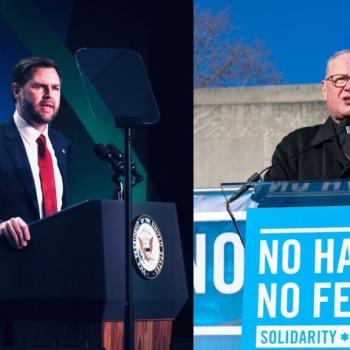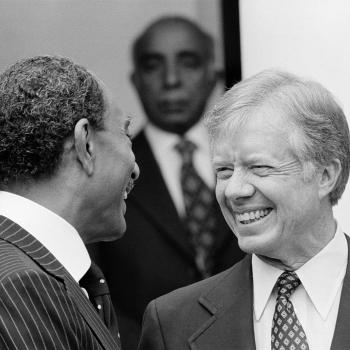Shouldn't we love the Church as good parents love their children? Shouldn't we be as gentle and careful in sharing our scant wisdom with them as we hope they will be in teaching us from their great wellsprings of wisdom? And if, like children, they sometimes stingingly reject what we offer, shouldn't we be patient, our commitment to the Church unwavering? Instead of being outraged when they read Sunstone and Dialogue, shouldn't Latter-day Saints open these pages to be fed? Isn't it worth keeping silence about some "truths" in order to earn their trust in the far more important truth that we have vowed to help them bear their burdens?
If Sunstone or Dialogue are forums for people who have left the community of believers and now scorn it, or people who have succumbed to their sins and hate the Church for not pretending their weakness is acceptable, or people who have embraced heresy and wish to proselytize for it, then how can Sunstone and Dialogue hope to be taken seriously -- by Mormons -- as journals of Mormon thought? These people may need a magazine of their own, but if Sunstone or Dialogue chooses to be that magazine, no one should complain if people with positions of trust in the Church are expected not to contribute to them.
Does this mean that I think Sunstone and Dialogue should only publish items that could clear Correlation Review? Of course not. Between official publications and heresy there is a vast area for serious speculation and passionate discussion. Many -- perhaps most -- of the articles in these magazines fall within this vital range.
Furthermore, even if all Sunstone and Dialogue writers spoke exactly the way I have suggested, there would still be some Saints, in or out of the hierarchy, who would resent, object to, even attack these publications. A well-meant, careful statement by a loyal Saint can still be misinterpreted. And no work can survive a hostile reading. I've had my own tastes of this -- from the Mormon Left as often as from the Mormon Right. So have many of you.
For instance, my novel Saints was written as an attempt to create a positive, accurate impression of early Mormonism in the minds of nonmember readers. It was important to me that nothing in the book suggest that Joseph Smith was not a prophet -- but also that nothing in the book require nonmember readers to decide whether to believe that he was a prophet. I carefully walked the narrow line between my faith and the nonmember readers' unbelief, in the effort to give the unconverted an understanding of the lives of believers. In the process, I also wanted to give Mormon readers as real and powerful an experience of their own forebears' lives as I could.
For many thousands of readers I succeeded -- but I am well aware that to some I gave great offense. I regret that offense; I would undo it if I could. I don't believe that because I am an artist I am immune from the responsibilities of Church membership; I don't have a higher allegiance to art than to the Church. Quite the opposite. I can't possibly be a good artist unless my highest allegiance is to the Kingdom of God. Evil art, well-wrought, is all the more harmful; good art, clumsily executed, is better. Best of all, though, is good art well-made, and that's what I strive for
When any in the Mormon audience, after a fair reading, find that I have not achieved it, I hope they will forgive my personal imperfection and trust me to grow out of it, as they also expect the rest of us to forgive their imperfections. That someone will take offense is almost inevitable whenever we make any kind of statement that rises above blandness. It will certainly happen with Sunstone and Dialogue despite the best intentions; it happens all the time to General Authorities, too. Anyone's words and acts can be misinterpreted; anyone can, through ignorance or carelessness, offend unintentionally.
Fortunately, Mormons believe it is the road to heaven, not to hell, that is paved with good intentions. We forgive each other for unintended harm.
Orson Scott Card is an award-winning writer. Visit his official website, Hatrack River.




